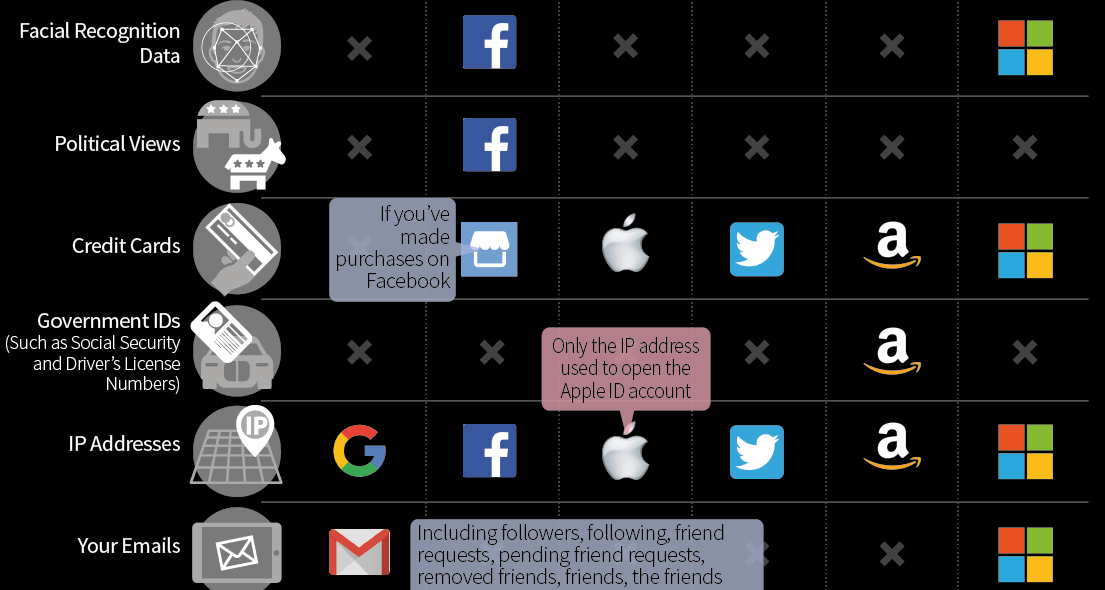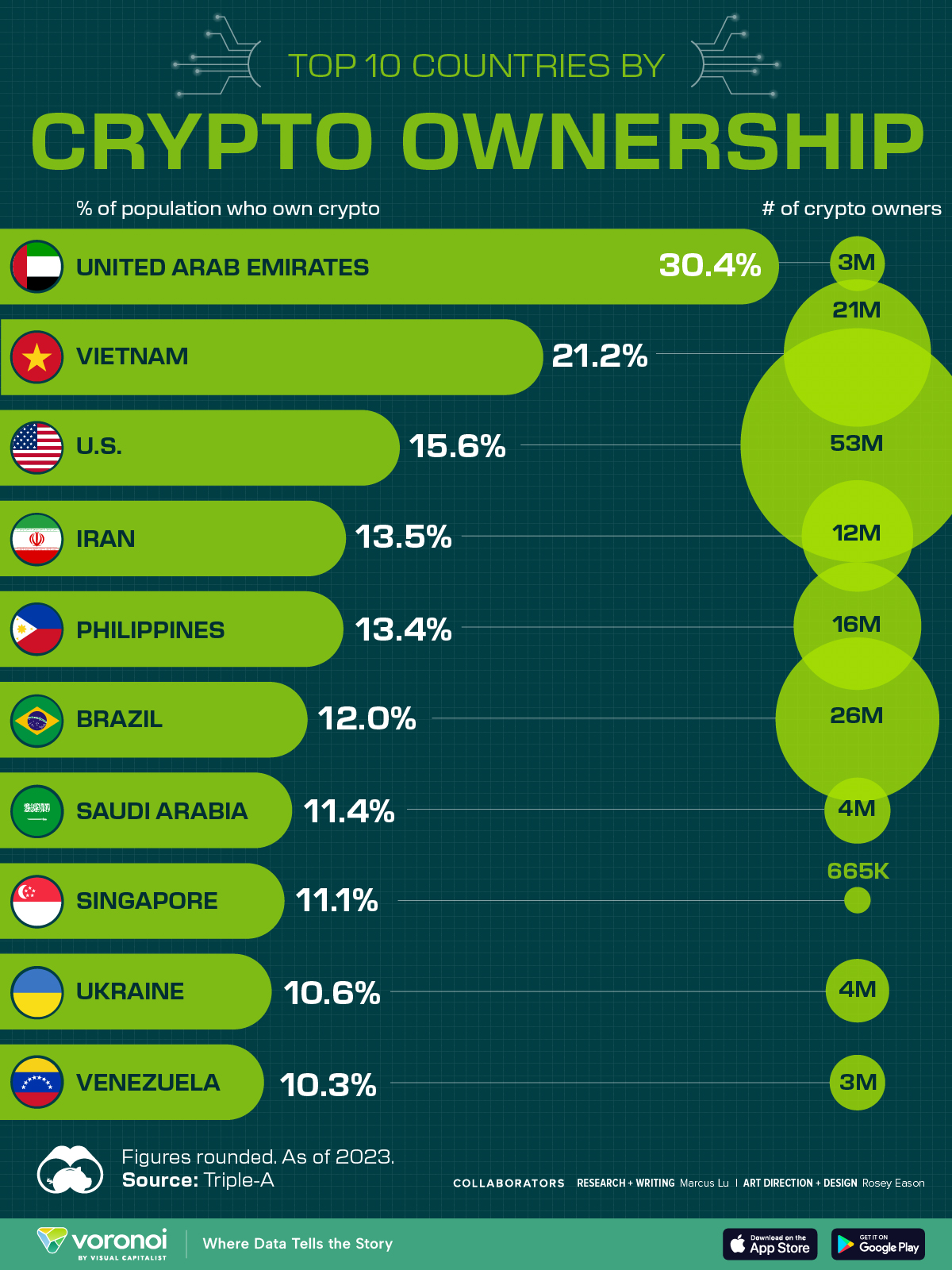Technology
Here’s What the Big Tech Companies Know About You
The novelty of the internet platform boom has mostly worn off.
Now that companies like Facebook, Amazon, and Alphabet are among the world’s most valued companies, people are starting to hold them more accountable for the impact of their actions on the real world.
From the Cambridge Analytica scandal to the transparency of Apple’s supply chain, it’s clear that big tech companies are under higher scrutiny. Unsurprisingly, much of this concern stems around one key currency that tech companies leverage for their own profitability: personal data.
What Big Tech Knows
Today’s infographic comes to us from Security Baron, and it compares and contrasts the data that big tech companies admit to collecting in their privacy policies.

While the list of data collected by big tech is extensive in both length and breadth, it does take two to tango.
For many of these categories, users have to willingly supply their data in order for it to be collected. For example, you don’t have to fill out your relationship status on Facebook, but millions of users choose to do so.
Did I Opt Into This?
The majority of the data categories on the list make sense – it’s a no-brainer that Amazon has your credit card information, or that Google knows what websites you visit. Even the least tech-savvy person would likely understand this.
However, there are definitely some categories of data that get collected and stored that may sound unnerving to some people:
- Facebook knows your political views, religious views, and even your ethnicity
- Xbox users will have their skeletal tracking data collected through the Kinect device
- Facebook also knows your income level, which it finds out through partnerships with personal data brokers
- Platforms collect your documents, email, and message data – though some of this is just metadata
- Facebook and Microsoft store facial recognition data, based on the pictures you upload
Remember, this is just what companies admit to collecting in their privacy policies – what else do you think they know?
Technology
Countries With the Highest Rates of Crypto Ownership
While the U.S. is a major market for cryptocurrencies, two countries surpass it in terms of their rates of crypto ownership.
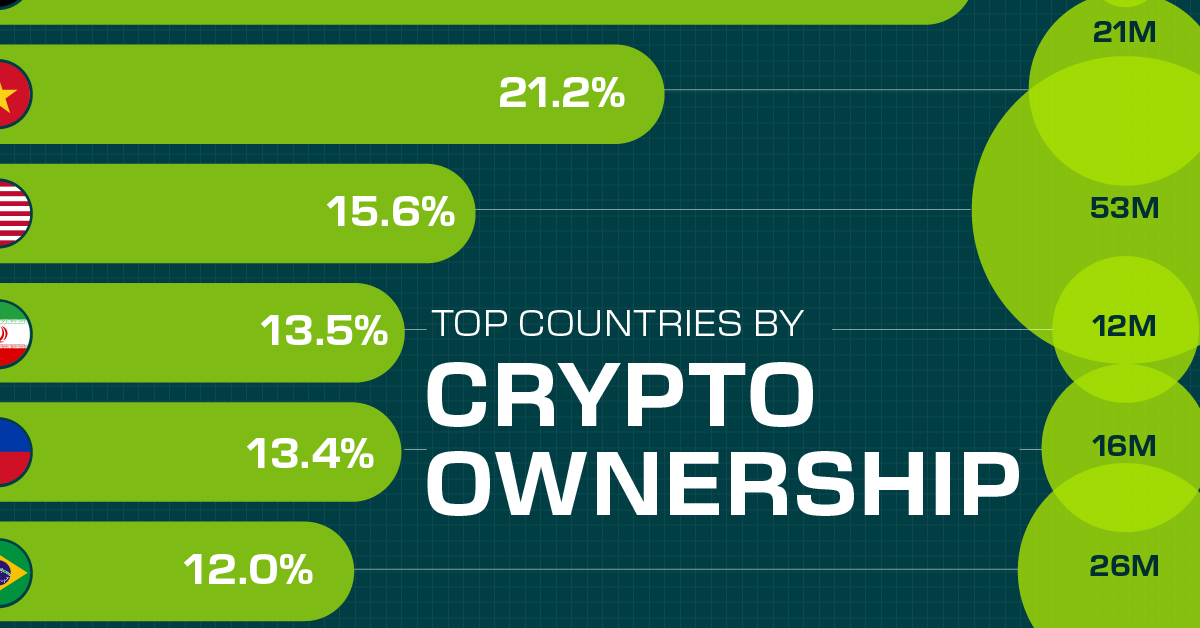
Countries With the Highest Rates of Crypto Ownership
This was originally posted on our Voronoi app. Download the app for free on iOS or Android and discover incredible data-driven charts from a variety of trusted sources.
This graphic ranks the top 10 countries by their rate of cryptocurrency ownership, which is the percentage of the population that owns crypto. These figures come from crypto payment gateway, Triple-A, and are as of 2023.
Data and Highlights
The table below lists the rates of crypto ownership in the top 10 countries, as well as the number of people this amounts to.
| Country | % of Population Who Own Crypto | # of Crypto Owners |
|---|---|---|
| 🇦🇪 United Arab Emirates | 30.4 | 3M |
| 🇻🇳 Vietnam | 21.2 | 21M |
| 🇺🇸 U.S. | 15.6 | 53M |
| 🇮🇷 Iran | 13.5 | 12M |
| 🇵🇭 Philippines | 13.4 | 16M |
| 🇧🇷 Brazil | 12 | 26M |
| 🇸🇦 Saudi Arabia | 11.4 | 4M |
| 🇸🇬 Singapore | 11.1 | 665K |
| 🇺🇦 Ukraine | 10.6 | 4M |
| 🇻🇪 Venezuela | 10.3 | 3M |
Note that if we were to rank countries based on their actual number of crypto owners, India would rank first at 93 million people, China would rank second at 59 million people, and the U.S. would rank third at 52 million people.
The UAE Takes the Top Spot
The United Arab Emirates (UAE) boasts the highest rates of crypto ownership globally. The country’s government is considered to be very crypto friendly, as described in Henley & Partners’ Crypto Wealth Report 2023:
In the UAE, the Financial Services Regulatory Authority (FSRA-ADGM) was the first to provide rules and regulations regarding cryptocurrency purchasing and selling. The Emirates are generally very open to new technologies and have proposed zero taxes for crypto owners and businesses.
Vietnam leads Southeast Asia
According to the Crypto Council for Innovation, cryptocurrency holdings in Vietnam are also untaxed, making them an attractive asset.
Another reason for Vietnam’s high rates of ownership could be its large unbanked population (people without access to financial services). Cryptocurrencies may provide an alternative means of accessing these services without relying on traditional banks.
Learn More About Crypto From Visual Capitalist
If you enjoyed this post, be sure to check out The World’s Largest Corporate Holders of Bitcoin, which ranks the top 12 publicly traded companies by their Bitcoin holdings.
-
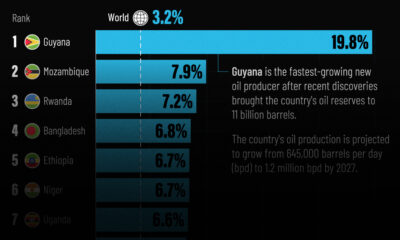
 Markets5 days ago
Markets5 days agoThe World’s Fastest Growing Emerging Markets (2024-2029 Forecast)
-

 Technology2 weeks ago
Technology2 weeks agoAll of the Grants Given by the U.S. CHIPS Act
-

 Green2 weeks ago
Green2 weeks agoThe Carbon Footprint of Major Travel Methods
-

 United States2 weeks ago
United States2 weeks agoVisualizing the Most Common Pets in the U.S.
-

 Culture2 weeks ago
Culture2 weeks agoThe World’s Top Media Franchises by All-Time Revenue
-

 Visual Capitalist1 week ago
Visual Capitalist1 week agoBest Visualizations of April on the Voronoi App
-

 Wealth1 week ago
Wealth1 week agoCharted: Which Country Has the Most Billionaires in 2024?
-
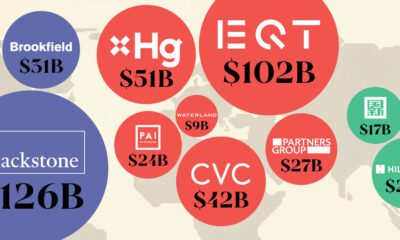
 Markets1 week ago
Markets1 week agoThe Top Private Equity Firms by Country

